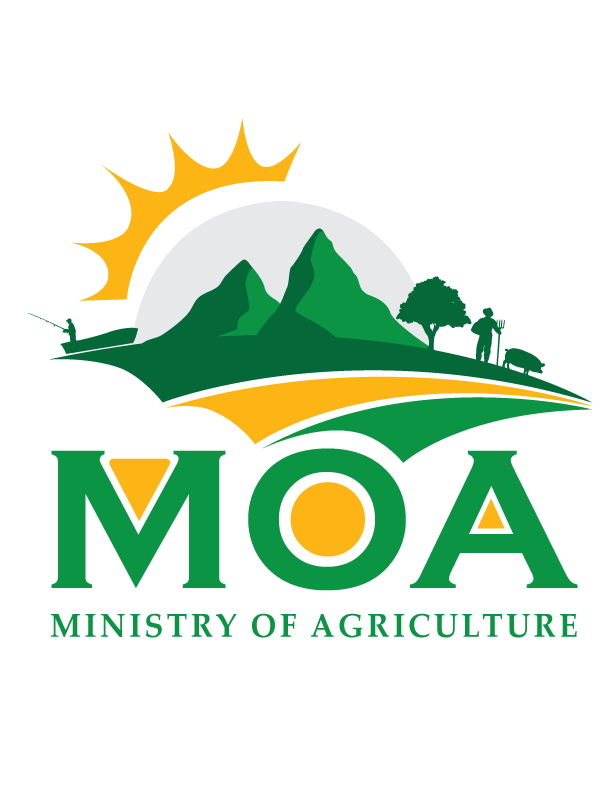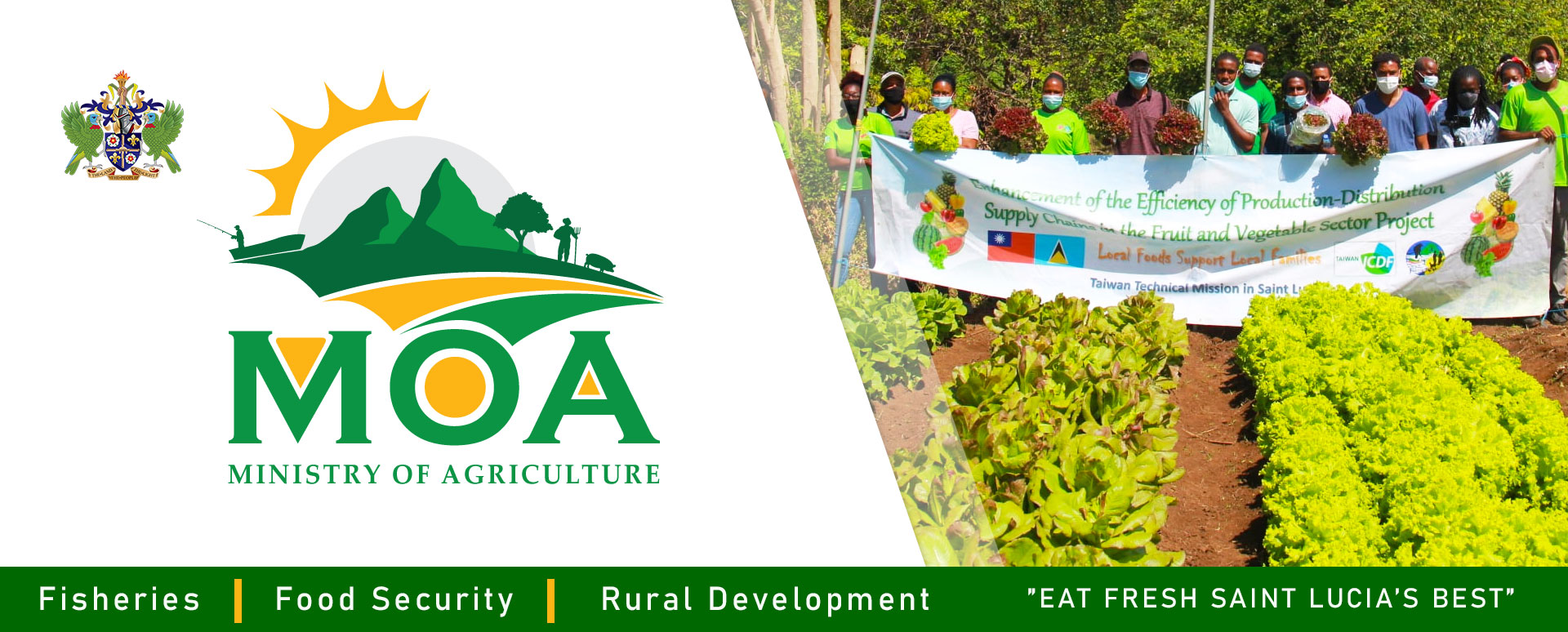Fusarium Oxysporum F.Sp. Cubenses Tropical Race 4
Playlist
- Fusarium Wilt TR4 Awareness Activity- Sir Arthur Lewis Community College
- Fusarium Wilt TR4 Awareness Activity
- TR4 Fusarium Wilt Press Update
- Plant Diagnostics Training Workshop
- Career Day- Soufriere Comprehensive Secondary School
- Career Showcase, Micoud Multipurpose Center
- CIRAD Banana Team Visit
- AgriTalk' Dr. Auria King and TR4 Taskforce Take Awareness Campaign To SLASPA - Update # 5
- TR4 Taskforce Takes Awareness Campaign To SLASPA
- AgriTalk' Chief Plant Research Officer Provides Insight on Pathogens - Update # 4
- Extention Officers On TR4 Alert - Update # 3
- AgriTalk' Update#1 on The Tropical Race 4 (TR4) Banana Diseases
- Minister Meets with Farmers in Grace, Vieux Fort
- Ministry Creates Heightened TR4 Awareness
- The TR4 Taskforce Develops A Rapid Emergency Action Plan
TR4 is NOT PRESENT
in Saint Lucia, and it is important we
KEEP IT OUT
DISTRIBUTION MAPS
Showing the spread of fusarium oxysporum f.sp. cubense tropical race 4 Worldwide
TR4 is an aggressive strain of banana fusarium wilt (Fusarium oxysporum f.sp. cubense tropical race 4), one of only six strains that attack Cavendish bananas. If unchecked, TR4 can wipe out an entire plantation (COLEAD, 2021). The disease itself is not new to Saint Lucia, as Banana farmers are familiar with Tropical Race 1 (TR1) of the Banana Fusarium wilt disease or as it was commonly known, the Panama Disease which wiped out Gros Michel Banana during the 1960s. Cavendish varieties such as Valerie and Williams which are widely cultivated on the island, were introduced to replace the Gros Michel as these were resistant to TR1. Now, these TR1 resistant varieties are susceptible to Race 4. Although Bananas are usually the most referenced fruit, Plantains and Makumbu which are all Musa sp., are also affected.
TR4 was detected in Asia in the 1970s and Africa in 2013. On our side of the world, in 2019 its presence was confirmed in Colombia, Peru in 2021 and Venezuela as of January 2023.
TR4 is NOT PRESENT in Saint Lucia, and it is important we KEEP IT OUT.
According to the TR4 Global Network, the fungus spreads through infected plant materials and contaminated soil particles attached to items such as farm tools, shoes, clothes, animals and vehicles. Irrigation and drainage water also play a critical role in its spread. Hurricanes and other storms can also carry the TR4 fungus to new plantations.
The survival form of the fungus, spores with a thick wall called chlamydospores, can remain dormant in the soil or on several host plants for decades. This pathogen operates by attacking the roots of the banana causing the Banana Fusarium Wilt disease by clogging its vascular system, this starves the plant as water and nutrients are unable to move around the plant as needed. This prevents the plant from being able to carry out its normal physiological functions, which means the plant is unable to produce its much needed fruits. This is devastating not only for Banana Exports, but also for countries like Saint Lucia which rely heavily on Banana and Plantain as a food source.
Developing new resistant varieties are a key strategy to combat and possibly halt the spread ofTR4. However, research of this nature takes time. In the interim, our best bet is to PREVENT the introduction of TR4 and IMMEDIATE containment of the contaminated area if detected on island.
The TR4 Task Force commissioned by the Ministry of Agriculture, is responsible for monitoring the spread of the disease and implementing the National Action Plan for TR4 which includes introducing biosecurity measures to safeguard our borders, introducing farm biosecurity to contain the disease if introduced as well as providing guidance on policy development and legislative review. The work of the task force is supported by TR4 Communications Committee with responsibility for public awareness component of the National TR4 Action Plan.


















